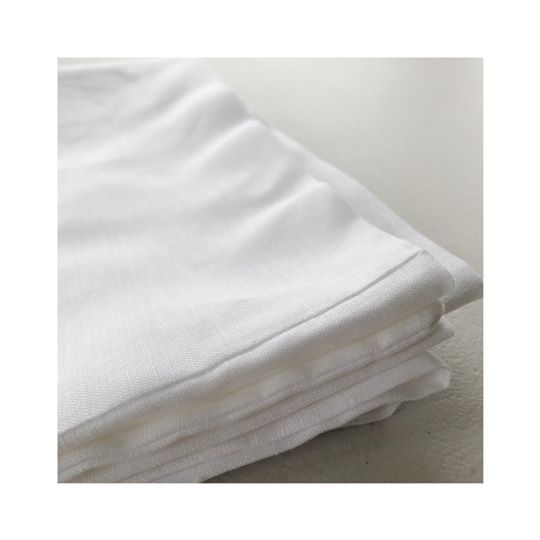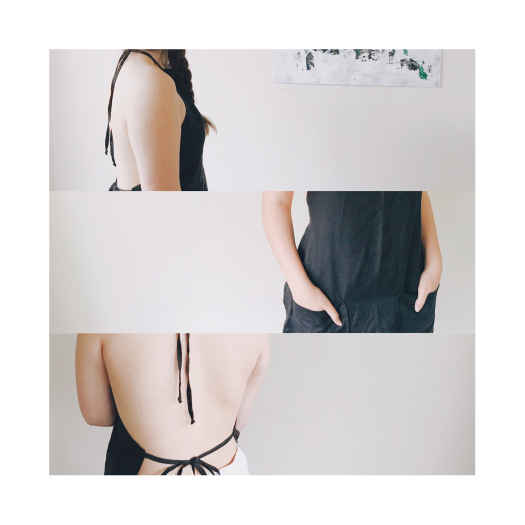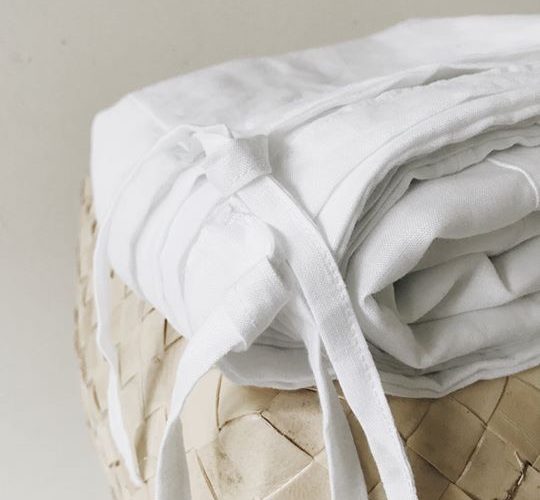Today I’m stepping aside to let the lovely Tanya of Fog & Moon take the reigns. Fog & Moon are a new sustainable company based in New Zealand creating beautiful, ethical fashion and homeware from linen. Tanya and I got chatting, and when I learned more about the steps she’s taking to revolutionise sustainability in New Zealand, I asked Tanya if she’d like to tell her story here.
Below are her words…
My name is Tanya Te Miringa Te Rorarangi Ruka. I am Ngati Pakau, Ngapuhi, Waitaha Iwi. I am an artist and designer and I moved from Wellington to Auckland almost two years ago. Since I was a small child I have been fascinated by the forces of nature, the energy of wild weather, the eerie silence of snow storms and the magnitude of the night sky. I am Maori, my mother is Maori, my father Italian. I was born in Australia and I spent my early years travelling across the world and in Europe before coming home to Aotearoa New Zealand when I was 12 years old. I remember my Mother saying to me in the plane “There it is, the land of the long white cloud – home.”

THE SHORT STORY.
In June 2015 I started a research project called Positive by Nature. I was inspired by the work of Bill Reed, an architect in the U.S and founding member of the Regenesis Group. I was interested in their solutions based thinking: rather than ‘problem solving’ the environmental ‘issues’, the solutions are discovered within the landscape by taking the time to research and ask questions about the history of the land, the people and the communities. Over years the success of their solution based thinking became evident in the regenerated landscapes, and the process reminded me of the Maori concept of genealogy, the idea of going right back to the source. The positive focus on solutions was the hope that I had been looking for!
What does solutions based theory mean to me? On a personal level with all the turmoil in life, my culture, the environment and the world. I wanted to find some small way that I could become a part of the solution. How could I become of service? This involved looking inwards and taking stock of my life experience and the skills I had gained over the years. I had been given my Great Grandmothers rongoa (Maori medicine) recipes by my Mother. Rongoa is made from New Zealand native plants, and these recipes have been the source of my inspiration for years, so I started with the recipes to help guide my direction. During my research I became really interested in the story of our New Zealand native flax plant. Traditionally this was used by Maori for weaving, clothing, bags (kete), kites, toys, and most importantly medicine. I was fascinated to find out how and why it was being used as reparation planting, reducing river toxins, and I wanted to learn more. I found that our New Zealand flax plant is of no relation to the original European flax plant. (Linen material is produced from European flax plant fibres, and I adore linen!)
The oldest textile discovered is of course linen, remnants of the cloth have been found in Roman ruins and the Egyptians used linen to wrap the bodies of their Kings and Queens. Linen has always been considered a luxury material, and I was hooked by the beneficial properties and potential of both plants, from seed to plant to product. The trail of information on our New Zealand flax seemed to end a couple of years ago, with various parties looking into different aspects of the plant. Flax seed oil seemed to be the only visual product I could find on the New Zealand market, and I was even more surprised to find that there is no production of linen or any plant based materials and textiles in New Zealand – we import it. I thought to myself in a time when the health benefits of natural plant medicines, plant diets and environmental regeneration is becoming more and more appreciated and utilised, and when the world is starting to shift and re-focus its energies on creating small local circular economies that feed back into communities, could we create our own special brand of linen here in New Zealand? Organically and sustainably produced by blending our native flax and the European flax plant with a reciprocal, cyclical whole system? One that feeds back into the environment and local community in a positive way – So began our Fog & Moon journey.

FOG & MOON LINENS
At Fog & Moon we adore crisp clean 100% pure linen, and we love natural, simple and functional designs that have been inspired by nature and the elements. Our use of natural material and handmade techniques give our products an heirloom quality, whilst remaining durable, sustainable and high quality.
Our aim is to design pieces that honour and reflect the subtle frailty and beautiful strength of linen. Acknowledging the source of where it came from – the flax plant. On occasion we will create a piece to add to our online collection (as we are underground designers we will not be releasing seasonal collections). Our philosophy is to make pieces that will remain with you and be passed down, as we love classic pieces that have a history and a story to tell.
Currently we source our linen from the Fabric Store in Wellington, as they have a zero waste policy, and we can personally select the material we use by examining its touch and feel. We are also working on importing linen from Master Linen growers in Ireland.
SO WHY SHOULD YOU LOVE LINEN?
- Linen is made from all natural flax plant fibres.
- Growing European flax plant does not require extra chemicals or much water
- Linen is durable.
- It is a breathable fibre, so keeps you cooler in the summer.
- It is cool against the skin – it has been measured that the body temperature of a person wearing linen can be up to 5% cooler.
- Linen has antibacterial properties, which is why it was also used in medicine as bandages and as sheets on hospital beds.
- The more linen is washed, the softer and smoother is becomes.
- Linen is capable of absorbing moisture and then quickly yielding it again – so it is great in the kitchen.
- Linen is biodegradable!
Linen fabric is made from the cellulose fibres that grow inside of the stalks of the European flax plant Linum usitatissimum. A flax crop is a more sustainable option than manmade materials that are heavy in chemicals and plastic elements. Even washing synthetic fibres at home can result in more micro plastic materials that end up in our oceans.
Currently there is no European flax fibre linen and textile production in New Zealand. This is where Fog & Moon would like to see a change. At Fog & Moon we would like to see what happens when the European flax and New Zealand native flax plants are brought together to produce a high quality, sustainable product to be passed down through generations.

A New Generation of New Zealand Linen
To truly understand the nature of the linen textile we are really looking forward to growing our own European linen flax plants and cultivating our New Zealand native flax in a harakeke pa (flax field), before hand processing the fibres to make linen and muka. In this way we can be responsible for our own ethical process and product. We expect that this will be a very slow process, and getting to the point where we are producing materials and textiles is our long term commitment.
All going well it looks like we could be growing our first crop next year, it’s an exciting time as we are starting to make in roads with New Zealand agricultural research. Whether our first crop will be on a small experimental scale in pots or large scale in fields, we do not know yet, but we will be bringing new meaning to the slow fashion and slow living movement by growing slow linens. This was my way to try to actively think, do and make possible solutions in our country.
We are always looking to connect and build our network with other makers, growers, creators, writers, designers or customers who are thinking, working and living in the same way. Write to us, connect with us, share your story and come join our Fog & Moon journey – lets watch the grass grow together!


Until next time, stay magic y’all.






1 Comments